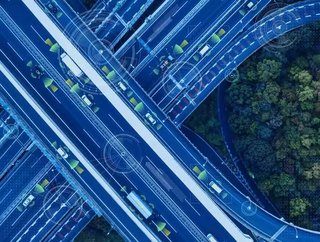The environmentally responsible logistics of the future

As governments around the world set out their environmental agendas, the business community must listen and adapt. The UK has set an ambitious target of becoming a zero emissions economy by 2050. The transport and logistics sectors can play a significant role in hitting these targets by implementing smarter transport solutions.
To set the scene: FedEx is the world’s largest express transportation company, connecting 99% of the world’s GDP and delivering more than 15mn shipments per day. Operating at such scale comes with huge complexities, especially in the environmental context. But navigating these issues is not just about seeking route efficiencies and replacing aged assets. To face these challenges head on, the industry must embrace new technologies, innovative thinking and close collaboration with policy makers and partners.
Smart, sustainable transport in action
At FedEx, we have already achieved some notable successes in air freight through sustainability-focused initiatives. The global air fleet is being continuously upgraded with more efficient planes which deliver enhanced technology and increased capacity, alongside improved fuel efficiency and reduced emissions. In combination with the FuelSense programme, and an overarching approach to logistics based on the principles of Reducing, Replacing and Revolutionising (The Three Rs), in the fiscal year FY18, the company was able to save more than 204mn gallons of fuel and avoid emitting more than 1.97mn metric tons of CO2 emissions. In the decade since 2009, CO2 emissions intensity have also been decreased by 37%.
Perhaps more tangibly exciting right now, however, is the potential for change in trunk-routing, driven by land-based Smart Transport innovations. Electric vehicles (EVs) have reached an important milestone with the technology recently becoming commercially viable. This is a major turning point for the future of transport and all associated industries.
But the electrification of vehicles is only one small step onto the road of change. The innovations which accompany battery-powered vehicles offer significant opportunity for the logistics sector. Automated vehicles are estimated to have the potential to increase productivity by freeing drivers up by as much as 225 hours a year each. For logistics operators, this will help ease the challenges faced by a growing driver skills shortage, while for existing drivers this means they can acquire new skills associated with managing connected and automated (CAM) vehicle networks.
By being connected through smart technology, CAM vehicles share data on road networks which will not only lead to road safety improvements, but will also increase efficiencies in route planning, vehicle deployment, capacity optimisation and fuel/energy utilisation.
SEE ALSO:
-
Why transport should be at the top of all sustainability agendas
-
Why to invest in shared transportation to build the foundation of tomorrow’s smart mobility
By 2026, all new vehicles in the UK will be connected, so it is not a question of if these technologies will become the standard, but when. To steer us through the transition to a completely smart transport system, we will need a clear vision and strong leadership to ensure the societal and economic advantages of this technology are fully realised, supported by close public-private collaboration and consultation to make this happen.
Smart Transport, Smart Thinking
Planning, design and access to charging-infrastructure all need to be considered as part of the holistic solution to this shared challenge. If the wrong decisions are made and there is no provision for logistics, we could end up with a patchwork of experiments and compromises that may undermine the fundamental goal.
And that is really where the impact will be felt - the last mile. Every city is different, and urban planners need to consider the best mix of smart solutions on a case-by-case basis. Congestion will be a key issue – connected and electric vehicles will go some way to reducing emissions and taking vehicles off the road during peak hours, but what other smart innovations can be employed?
Can planners and logistics companies seek new partners in other areas of the transport sector? The possibility of working with rail companies, for example, and finding the means to open up passenger rail capacity for cargo space, especially in bigger cities, could have huge potential. The right links could mean fewer large trucks or vans needed in our city centres and goods efficiently taken much closer to the intended recipient.
Meanwhile, research suggests that as many as 95% of city centre deliveries could be fulfilled by e-bikes, for example, reducing demand on road and parking space, and also reducing congestion. Leveraging existing ‘cycle super-highways’ can also be explored. Industrial partners could potentially support local government in developing these networks in exchange for usage rights.
Logistics services will play an important role in shaping the Smart Transportation and infrastructure landscape. The argument for logistics to be considered an essential service is getting louder and harder to ignore. There are obvious parallels with the national Postal Service: logistics too provides arteries for trade to flow.
Add to this, the discussion which indicates that personal vehicle ownership will soon be a thing of the past, driven not only by the UK’s net zero deadline, but also because of rapidly falling driving license acquisition numbers. It is easy to see how the supply chain’s remit will expand as a direct result, meaning dramatic changes for the transportation process.
Issues around sustainability and the environment are bigger than ourselves, but Smart Transport solutions will make a positive difference. Technology is advancing, but to ensure we do not lose momentum, government and industry must co-operate to ensure the right support structures – investment, regulations, legislation and trials, are in place to keep logistics moving.
Trevor Hoyle is Senior Vice President of Ground Operations Europe at FedEx Express






